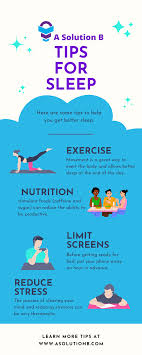The Relationship Between Alcohol and Sleep
Alcohol is a common substance that many people consume to relax, socialize, or unwind after a long day. While it may initially help you feel drowsy and fall asleep faster, the relationship between alcohol and sleep is more complex than it seems.
One of the misconceptions about alcohol is that it improves sleep quality. While it may make you feel sleepy, alcohol actually disrupts the natural sleep cycle. As your body metabolizes alcohol, it can lead to fragmented sleep patterns, causing you to wake up frequently throughout the night.
Moreover, alcohol interferes with the production of melatonin, a hormone that regulates sleep-wake cycles. This disruption can result in decreased overall sleep quality and leave you feeling groggy and unrested in the morning.
It’s important to note that while alcohol may help you fall asleep faster, it can also suppress REM (rapid eye movement) sleep – the stage of sleep associated with dreaming and cognitive restoration. Without adequate REM sleep, you may experience difficulties with memory consolidation, learning, and mood regulation.
Additionally, consuming alcohol before bedtime can exacerbate conditions such as snoring and sleep apnea. These breathing disorders can further disrupt your sleep and lead to daytime fatigue and irritability.
To promote healthy sleep habits, it’s advisable to limit or avoid alcohol consumption close to bedtime. Instead, consider establishing a relaxing bedtime routine, creating a comfortable sleep environment, and practicing good sleep hygiene habits such as maintaining a consistent sleep schedule.
By understanding the impact of alcohol on your sleep quality and making conscious choices about consumption, you can improve your overall well-being and enjoy restful nights of rejuvenating rest.
Understanding Alcohol and Sleep: Answers to 6 Common Questions
- How does alcohol affect sleep?
- What is the 20 minute rule for alcohol?
- Why do alcoholics have trouble sleeping?
- How long does alcohol affect sleep?
- How does alcohol affect your sleep?
- How do you stop alcohol from disrupting sleep?
How does alcohol affect sleep?
Alcohol can have a significant impact on sleep quality and patterns. While it may initially make you feel drowsy and help you fall asleep faster, alcohol disrupts the natural sleep cycle by fragmenting your rest. It interferes with the production of melatonin, the hormone responsible for regulating sleep-wake cycles, leading to decreased overall sleep quality. Alcohol consumption can also suppress REM (rapid eye movement) sleep, affecting cognitive restoration and memory consolidation. Ultimately, while alcohol may induce short-term sedation, its long-term effects on sleep can result in fragmented rest, daytime fatigue, and reduced cognitive function.
What is the 20 minute rule for alcohol?
The 20-minute rule for alcohol refers to the concept that it takes approximately 20 minutes for the effects of alcohol to be felt after consumption. This guideline suggests that individuals should pace their drinking and allow time between alcoholic beverages to gauge their level of intoxication accurately. By following the 20-minute rule, individuals can better manage their alcohol intake, monitor their tolerance levels, and make informed decisions about responsible drinking to avoid potential negative effects on sleep quality and overall well-being.
Why do alcoholics have trouble sleeping?
Alcoholics often struggle with sleep disturbances due to the disruptive effects of alcohol on the body’s natural sleep processes. Prolonged and excessive alcohol consumption can lead to tolerance, dependence, and withdrawal symptoms that impact the quality of sleep. Alcoholics may experience difficulty falling asleep, frequent awakenings throughout the night, and a decrease in restorative REM sleep. The body becomes accustomed to relying on alcohol to induce drowsiness, making it challenging to achieve restful and uninterrupted sleep without its presence. Additionally, alcohol withdrawal symptoms such as anxiety, restlessness, and night sweats can further exacerbate insomnia and contribute to ongoing sleep difficulties for individuals struggling with alcohol addiction.
How long does alcohol affect sleep?
The impact of alcohol on sleep duration can vary depending on factors such as the amount consumed and individual tolerance levels. While alcohol may initially induce drowsiness and help you fall asleep faster, its effects on sleep architecture can persist throughout the night. Alcohol can disrupt the natural sleep cycle, leading to fragmented and less restorative sleep. The presence of alcohol in the body can interfere with REM (rapid eye movement) sleep, affecting cognitive function and overall sleep quality. It’s important to be mindful of the timing and quantity of alcohol consumption to minimize its negative impact on your sleep duration and quality.
How does alcohol affect your sleep?
Alcohol can significantly impact your sleep quality and overall restfulness. While it may initially make you feel drowsy and help you fall asleep faster, alcohol disrupts the natural sleep cycle by fragmenting your rest. It interferes with the production of melatonin, a hormone essential for regulating sleep-wake cycles, leading to decreased overall sleep quality. Consuming alcohol before bedtime can also suppress REM sleep, which is crucial for cognitive restoration and emotional well-being. As a result, individuals may experience disrupted sleep patterns, frequent awakenings during the night, and feelings of grogginess upon waking. It’s important to be mindful of how alcohol consumption can affect your sleep and consider limiting or avoiding it close to bedtime to promote better restorative sleep.
How do you stop alcohol from disrupting sleep?
To prevent alcohol from disrupting sleep, it is essential to establish healthy habits and strategies. One effective approach is to limit alcohol consumption, especially close to bedtime. By moderating your intake and avoiding alcohol in the hours leading up to sleep, you can reduce its disruptive effects on your sleep cycle. Additionally, creating a relaxing bedtime routine, optimizing your sleep environment, and practicing good sleep hygiene can help counteract the negative impact of alcohol on your rest. Prioritizing quality sleep by incorporating these practices can lead to improved overall well-being and a more restful night’s sleep.



